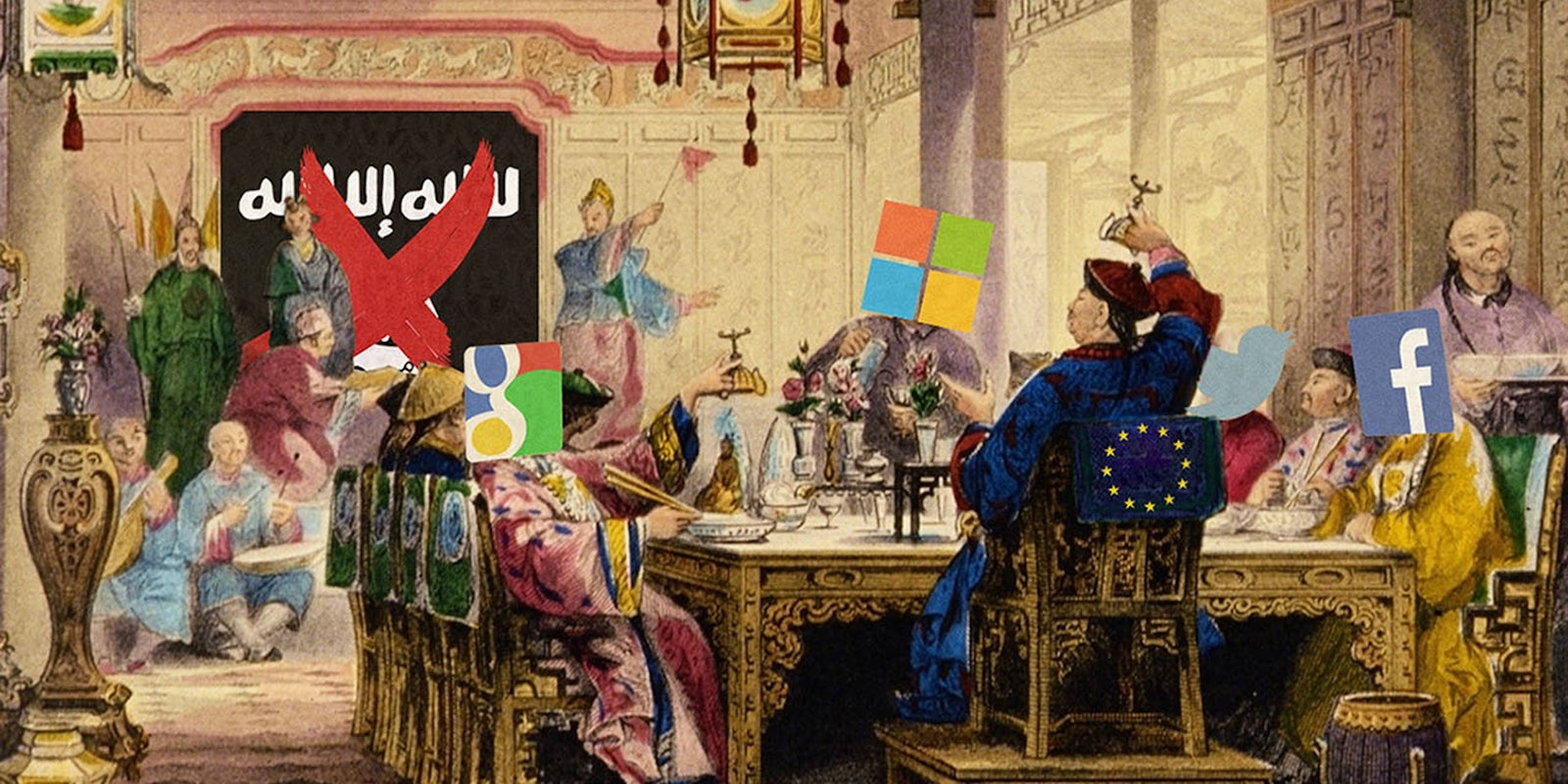As fears of online extremism rise alongside the threat posed by the Islamic State of Iraq and Syria (ISIS), the world’s largest technology companies are set to meet on Wednesday with representatives of the European Union to plan a counterattack.
The BBC reports that Google, Twitter, Microsoft, and Facebook are among the tech companies meeting with representatives from E.U. member-states “to discuss ways to tackle online extremism, including better cooperation between the E.U. and key sites.”
A spokesperson for the European Commission, the central governing body of the 28-member E.U., told the BBC that the regional organization wanted to “enhance the dialogue with major companies from the Internet industry on issues of mutual concerns related to online radicalisation.”
According to the BBC’s report, this is the second meeting between E.U. representatives and technology companies. Experts are concerned that over 500 British nationals have already joined ISIS, which is conquering town after town in the unpoliced border region straddling Iraq and Syria.
The United States government also recognizes the recruiting power of social networks like Twitter. It is waging a digital battle for the hearts and minds of young Arabs in an attempt to convince would-be jihadists to turn away from extremism.
Think Again Turn Away, the U.S. Department of State’s primary online anti-extremism program, operates Facebook and Twitter presences used to mock terrorists and highlight the plight of those caught in ISIS’s path.
Northern Iraq: 75% of Assyrians return to villages after #ISIS is expelled https://t.co/O2NMb0WLez #thinkagainturnaway pic.twitter.com/bqSFSgQ3zO
— Think AgainTurn Away (@ThinkAgain_DOS) October 8, 2014
The State Department program recently expanded to Ask.fm, an online question-and-answer service that, according to the BBC, has become an unlikely favorite of Islamic extremists looking to recruit new members. Ask.fm was not invited to Wednesday’s meeting, but representatives of the company said they “would have attended for sure.”
The U.K.’s Metropolitan Police Service, which handles law enforcement in the London area, told the BBC that social networking services and other online platforms remove approximately 1,100 terrorism-related items every week, about 800 of which are related to ISIS.
Painting via Thomas Allom/Wikimedia Commons | Remix by Rob Price


